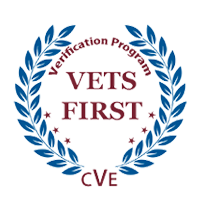How to start your Veteran-Owned Business:
First stop in opening a small business is to visit the SBA and see the guidelines for opening a small business.
You need:
Written outline of your business idea.
What is your business idea? Are you opening a small retail store, a computer repair shop? Are you starting a business as a contractor? This written outline will help you later when you go to construct your business plan.
A legal framework/structure for your business: This is required by law, and helps determine the way your business will be taxed by the IRS.
Examples of Frameworks include:
- Sole Proprietorship: Sole Proprietor is someone who owns an unincorporated business by himself or herself. Essentially: You are the only business owner.
- Partnership: is owned by two or more individuals; the company is not taxed, individuals in the partnership must claim their share of the tax burden on their taxes. You own the business with a partner, and you each claim your portion of the business on your taxes.
- Corporation: prospective shareholders exchange money, property, or both, for the corporation’s capital stock. The company is (will be) owned by shareholders.
- S Corporation: Passes corporate income, losses, deductions, and credits to shareholders for federal tax purposes. The company will be owned by shareholders, who assume responsibility for all financial aspects of the business for tax purposes.
Limited Liability Company (LLC): LLCs are regulated by state statutes. Owners are called “members.” Please visit your state tax offices for information on how to open a LLC.
A business plan: A business plan is important for opening any business. This will show prospective lenders and other people who will contract with your company how you plan to make your money. It is a five-year plan for your business. It includes your business’ initial set-up through up to five years of your business’s future.
Information you will want to include in your business plan includes:
- Executive Summary: Who is responsible for executive decisions?
- Company Description: What does your company do?
- Market Analysis: Research your competitors, industry and market
- Organization & Management: How is your company going to be organized?
- Service or product line: What do you sell, or what service do you provide.
- Marketing and sales: How will you market and advertise? How much do you project to earn in sales?
- Funding Request: If you’re going to seek funding, find out the information you’ll need to get started. Each funding sources will require different things.
- Financial projections: If you are getting a loan, or funding, how much to you expect to earn?
- Appendix: Optional, but useful. This can include resumes, leases, portfolios, and permits.
Your business plan must then be reviewed by a Business Counselor. This is one way to make certain that you did not skip any important or crucial information in your business plan. Veteran Business Outreach Centers by state. Business Counselors are required by the Small Business Association to have a Request for Counseling form on file before they can begin your counseling.
Implement the plan: Now it is time for your Business to start working. Open your business, and use everything you have laid out in your business plan to start making your business work.
Register VOB with VIP database at Vetbiz: This database is operated by the Department of Veteran Affairs. Registering your business on Vetbiz is free, and once you are enrolled, you will be informed of contracting opportunities, VOSB related news, and be eligible for special consideration in federal contracting permits.
By following these steps, you have not only started your business but you have registered your business as a Veteran owned business and are eligible for the Veteran Administration Veteran’s First program.

